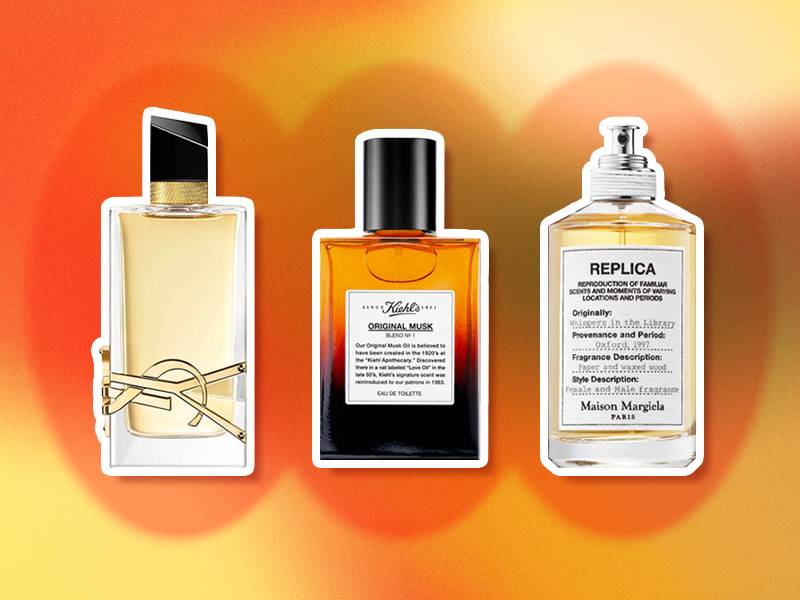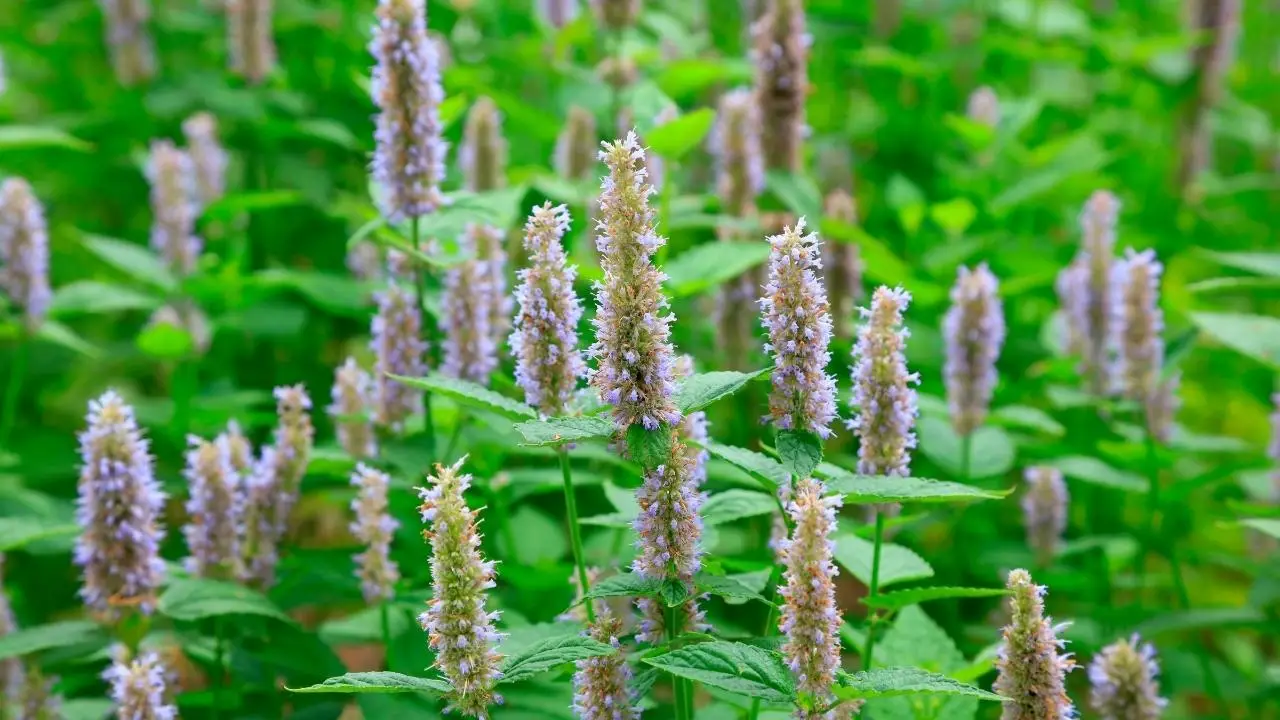Patchouli oil is offensive due to its strong, musky scent that some individuals find overpowering and unpleasant. It is not widely appreciated among certain people due to its distinct aroma.
Patchouli oil is known for its potent and distinct fragrance, characterized by its earthy, musky, and sometimes even pungent scent. While this aroma may be enjoyed by some, it can be offensive to others, leading to a lack of appreciation for the oil.
The strong and long-lasting fragrance of patchouli oil can be overpowering in certain situations or for individuals who have a heightened sensitivity to scents. As a result, it is important to consider the preferences and reactions of those who might encounter the smell of patchouli oil before using it in a shared or public space.

Credit: www.amazon.com
The Origins Of Patchouli Oil
Patchouli oil has gained a reputation for its strong and divisive scent. Its origins can be traced back to the patchouli plant, which is native to tropical regions. This plant, belonging to the mint family, thrives in warm and humid climates.
Historically, patchouli oil has been used in various ancient civilizations for its medicinal and aromatic properties. Its distinctive fragrance was particularly sought after for masking unpleasant odors and repelling insects. The oil was also valued for its potential to promote relaxation and alleviate skin problems.
Today, patchouli oil continues to be used in perfumes, essential oils, and skincare products, albeit with mixed opinions on its scent. Despite its polarizing nature, patchouli oil holds a significant place in the history of aromatherapy and alternative medicine.
Popularization Of Patchouli Oil
Patchouli oil has gained notoriety due to its association with the Hippie movement of the 1960s. This cultural revolution promoted individualism and non-conformity, with patchouli oil becoming a symbol of freedom and rebellion. The oil’s distinct earthy scent became popular among the counterculture, and its use expanded into mainstream society over time.
Patchouli oil’s presence in popular culture and media has further contributed to its association with the Hippie movement. It has been featured in various forms of artistic expression, such as music, literature, and films, solidifying its image as a quintessential element of that era.
Despite its popularity, patchouli oil’s offensive scent may not appeal to everyone, leading to varying perceptions and opinions surrounding its usage. Nevertheless, the influence of the Hippie movement continues to keep patchouli oil relevant in today’s society.
The Scent Of Patchouli
Patchouli oil is known for its distinctive aroma, which is a blend of earthiness, muskiness, and woodiness. Its fragrance is often described as warm, rich, and exotic. The unique scent of patchouli oil comes from several contributing factors. Firstly, it contains compounds called sesquiterpenes, which give it an earthy and woody aroma.
Additionally, patchoulol, a key component in patchouli oil, contributes to its musky scent. The aging process of the oil also enhances its fragrance, making it deeper and more complex over time. Furthermore, the origin and quality of the patchouli plants used in the oil extraction process can influence the overall scent.
Overall, the offensive nature of patchouli oil is subjective, as some people may find its strong and bold fragrance appealing, while others may not.
Patchouli Oil In Perfumery
Patchouli oil is often considered offensive due to its strong and distinctive scent. In perfumery, it is primarily used as a base note, providing depth and longevity to fragrances. The role of patchouli oil varies depending on the type of perfume it is blended with.
For oriental fragrances, it adds a rich and exotic touch, while in woody perfumes, it imparts a sense of earthiness. Patchouli oil’s blending capabilities are remarkable, as it can harmonize well with various other essential oils. It is often combined with floral notes such as rose and lavender, adding a unique twist to the overall composition.
Additionally, patchouli oil is known for its ability to mask unwanted odors, making it a versatile ingredient in perfumery. Its distinctive aroma may be polarizing, but it is undoubtedly a crucial element in creating captivating and memorable scents.
Patchouli Oil Stereotypes And Misunderstandings
Patchouli oil has often been associated with negative images and misunderstood by many. People mistakenly believe that it is offensive due to its earthy and musky scent. However, these stereotypes and misconceptions fail to recognize the numerous beneficial properties of patchouli oil.
Despite being commonly used in perfumes and fragrances, it offers a range of therapeutic benefits, including its ability to relieve stress and anxiety, soothe skin conditions, and improve digestion. Furthermore, patchouli oil has been used in traditional medicine for centuries, revered for its anti-inflammatory and antimicrobial properties.
By debunking the common misconceptions surrounding patchouli oil, we can truly appreciate its effectiveness and versatility in various applications. It’s time to challenge the negative preconceptions and embrace the true potential of this unique essential oil.
Patchouli Oil As An Offensive Scent
Patchouli oil, known for its distinct earthy scent, can be perceived as offensive by some individuals. Personal experiences and anecdotes shared by people further highlight this issue. Various sensory factors contribute to the offensive nature of patchouli oil, such as its intensity, which can be overpowering for sensitive noses.
Additionally, the oil’s strong aroma can linger for a long time and may be challenging to remove, making it difficult for those who find it offensive to be in close proximity to someone wearing it. Moreover, the association of patchouli oil with certain subcultures or time periods may elicit negative emotions or memories in individuals, further intensifying their aversion to the scent.
Understanding these factors can help create awareness and respect for those who find patchouli oil offensive. By being mindful of others’ preferences, we can ensure a more pleasant environment for everyone.
Patchouli Oil In Spiritual And Religious Practices
Patchouli oil, known for its distinct aroma, holds significant meaning in spiritual and religious practices. Used in various rituals and ceremonies, it possesses a symbolic significance in different cultures. This versatile oil is believed to enhance spiritual enlightenment, promote relaxation, and soothe the mind.
Its earthy and musky scent is thought to have grounding properties, making it a popular choice for meditation and prayer. In some traditions, patchouli oil is used during rituals to ward off negative energy and enhance positive vibrations. Its ability to harmonize and balance energy centers makes it a valuable asset in spiritual and religious settings.
Whether it is used in anointing oils, incense, or personal rituals, patchouli oil continues to play a profound role in connecting individuals with their spiritual understanding and practice. Its presence in these sacred contexts contributes to an enriching and meaningful experience.
Patchouli Oil In Traditional Medicine
Patchouli oil has a significant role in traditional medicine, both historically and in current applications. This essential oil is renowned for its numerous therapeutic properties and benefits. Known for its distinct aroma, patchouli oil has been used for centuries as a natural remedy for various ailments.
It is believed to have antimicrobial, anti-inflammatory, and antifungal properties. Patchouli oil has been used in traditional medicine to treat skin conditions, such as acne, eczema, and psoriasis. It is also known to promote wound healing and alleviate symptoms of respiratory conditions.
Additionally, patchouli oil has been used to relieve stress, anxiety, and depression due to its calming and relaxing effects. With its rich history and versatile applications, patchouli oil continues to be valued in traditional medicine.
Individual Reactions To Patchouli Oil
Patchouli oil can elicit varied reactions from individuals due to personal preferences and associations. Our olfactory system is closely linked to our memories and emotions, making scents a powerful trigger. Some people may find the strong, musky aroma of patchouli oil offensive due to their aversion to certain scents.
This aversion can stem from negative past experiences or personal tastes. On the contrary, others may have positive associations with patchouli oil, finding it soothing or nostalgic. The impact of personal memories and associations with patchouli oil can greatly influence an individual’s reaction to its scent.
It’s important to respect these individual preferences and understand that what may be offensive to one person can be delightful to another.
The Influence Of Cultural Background On Scent Perception
Patchouli oil can be offensive to some, and this perception can be influenced by cultural backgrounds. Cultural upbringing and exposure to scents play a significant role in shaping individual preferences. Different cultures may have variations in scent perception, leading to different reactions to certain smells.
The way we interpret and perceive scents is deeply rooted in our cultural experiences. Factors such as personal beliefs, traditions, and even childhood memories can all contribute to our preferences for certain scents. This highlights the importance of understanding the cultural context when it comes to scent preferences and the potential offensiveness of certain smells.
By considering these factors, we can foster a better understanding and appreciation of diverse scent perceptions across cultures.
Frequently Asked Questions Of Why Is Patchouli Oil Offensive
Why Do Some People Not Like Patchouli?
Patchouli may not be liked by some due to its strong, earthy scent, which can be overpowering for sensitive noses.
Do Some People Hate The Smell Of Patchouli?
Yes, some people dislike the smell of patchouli due to personal preferences and sensitivities.
Why Do Stoners Like Patchouli?
Stoners like patchouli because its earthy scent complements the relaxing effects of cannabis.
What Is The Deal With Patchouli Oil?
Patchouli oil is a popular essential oil with a distinct, earthy fragrance used in perfumes and aromatherapy.
Conclusion
The offensive nature of Patchouli oil stems from its strong and distinct scent, which can be overpowering to many individuals. While some people may find the fragrance pleasant and appealing, it is crucial to recognize that scent preferences are highly subjective.
It is important to consider the impact of our choices and actions on those around us, especially in shared spaces or environments. Patchouli oil enthusiasts should be mindful of others’ sensitivities and strive to find a balance that allows everyone to coexist harmoniously.
Understanding and respecting the diverse preferences and sensitivities of those around us can foster a more inclusive and considerate society. Whether it’s through opting for alternative scents or using Patchouli oil sparingly, being mindful of others’ experiences can help ensure a more comfortable and pleasant environment for everyone.









